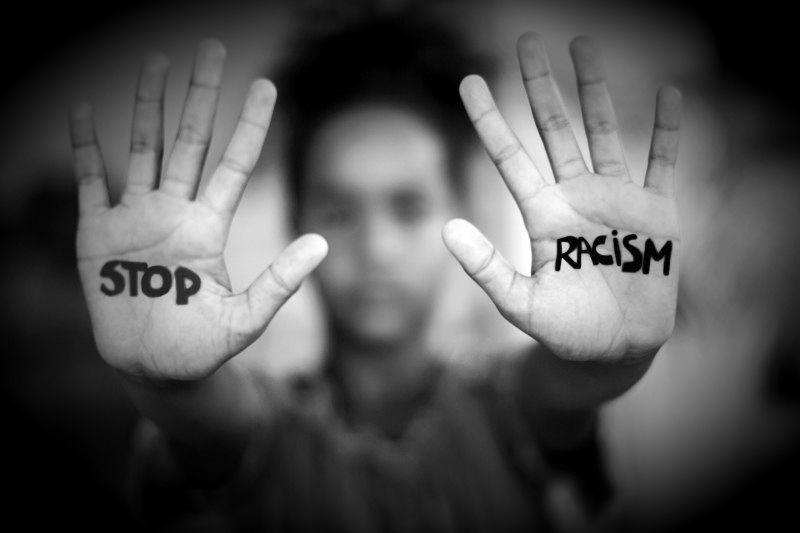Racism
- Krista Bontrager, DMin

- Sep 24, 2024
- 4 min read
Updated: Jan 13

Racism, an ancient and pervasive sin, has plagued humanity across cultures, ethnicities, and eras. We define racism as ethnic partiality. It is a form of tribalism that dehumanizes others simply because of their skin color, ethnicity or tribal group. Broadly speaking, it can manifest as either disadvantaging members of a particular group due to their ethnicity or tribe or advantaging members of a group because of their ethnicity.
Rooted in the fallen human condition, this sin contradicts the teachings of Scripture and the gospel’s transformative power. By recognizing ethnic partiality as a universal problem that affects all people groups, Christians can preserve biblical unity and reflect God’s design for humanity through repentance, humility, and justice.
The Biblical Foundation: Imago Dei and the Universality of Sin
The doctrine of the imago Dei—that all humans are created in God’s image (Genesis 1:26-27)—establishes the equal dignity and worth of every person, regardless of ethnicity or national background. Scripture affirms that humanity descends from one common ancestor (Acts 17:26), making ethnic diversity a result of human migration over time. To put it in scientific language, within the DNA of Adam and Eve was all of the ethnic diversity that exists today.
Racism violates God's design by treating individuals unequally based on ethnicity, whether by exclusion or favoritism. For example, disadvantaging someone might occur when a hiring manager overlooks a qualified candidate simply because of their ethnic background, and disregarding the merit of their skills or work experience. Conversely, advantaging someone might involve a scholarship program exclusively favoring applicants of a specific ethnicity, like prioritizing African American students over others.
Ethnic partiality is not a modern issue or the domain of one group; it is an ancient sin embedded in humanity’s fallen nature. From tribal conflicts to ethnic divisions, such as the hostility between Jews and Samaritans (John 4:9), ethnic partiality has long reflected human pride, fear, and hatred. Scripture condemns such partiality (James 2:9) and calls believers to love all people (John 13:34-35). The Bible declares that “all have sinned and fall short of the glory of God” (Romans 3:23). This means that no ethnicity is exempt from the capacity to show partiality, just as no one is free from sin. Unwarranted preferential treatment stems from the same sinful heart that produces greed, envy, or hatred across all cultures and times.
Critiquing Secular Approaches
Secular frameworks, such as Critical Race Theory and Antiracism, often define racism through power dynamics or systemic issues, attributing it primarily to one ethnic group, typically white people. Such definitions suggest that only certain groups can be racist, ignoring sin’s universal nature. From a Christian perspective, this view is inaccurate, as ethnic partiality—whether disadvantaging or advantaging—can be perpetrated by members of any ethnic group. Ethnic conflicts in ancient Mesopotamia, caste oppression in India, or tribal warfare in Africa demonstrate that prejudice transcends culture and ethnicity. Ethnic favoritism in hiring practices, whether they are rigged against black people or white people, demonstrate that ethnic partiality is a shared human failing.
These frameworks often categorize people as oppressors or oppressed based on group identity, fueling ethnic division. In contrast, the Bible calls for impartial justice rooted in God’s unchanging character (Deuteronomy 10:17-18). By defining racism as ethnic partiality, Christians can address both its forms—disadvantage (e.g., denying a job based on ethnicity) and advantage (e.g., granting privileges to one ethnic group)—as sins requiring a gospel-centered response.
A Gospel-Centered Response
The Christian response to ethnic partiality is rooted in the gospel’s power to transform hearts and unite people across cultural, ethnic and tribal divides into the Body of Christ. Jesus' death broke down the “dividing wall of hostility” (Ephesians 2:14), creating one body from diverse peoples. Revelation 7:9 pictures people from every nation and tribe worshiping together, reflecting God’s kingdom and a fulfillment of the Great Commission (Matt. 28:19-20). The gospel does not erase an individual's ethnic makeup, but it does elevate our shared identity in Christ above earthly distinctions (Galatians 3:28). Christians must reject sinful ethnic partiality and work to preserve the unity that we have in Christ by living according to God's righteous standards (Ephesians 4:1-3).
Practically speaking, the way to address unbiblical ethnic partiality among Christians begins with individual repentance. Christians must model humility, confessing their unjust biases and seeking forgiveness (Ephesians 4:1-3, 17-32). The church should foster honest, Scripture-grounded conversations about ethnicity, avoiding two errors: 1) denialism (ignoring racism’s reality) and 2) secular narratives that fuel division. By focusing on personal responsibility and gospel transformation, believers can counter both forms of ethnic partiality with a kingdom-minded approach. The church’s role within the broader culture is not to create a perfect society but to embody a community where all ethnicities are valued as image-bearers and united in faith and where healing is lived out through repentance and forgiveness. By rejecting secular frameworks that narrow racism to one group, Christians can address ethnic partiality with biblical truth, fostering a community that reflects God’s creation of all humans and points people to the transforming hope of the gospel.
Dig Deeper on This Topic:
Book: Walking in Unity, by Krista Bontrager and Monique Duson


